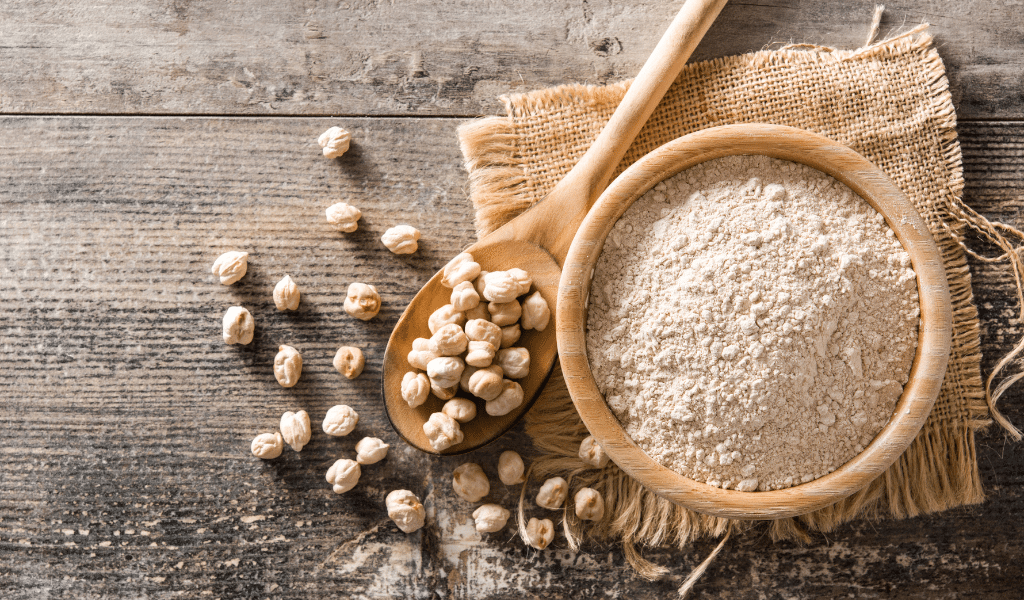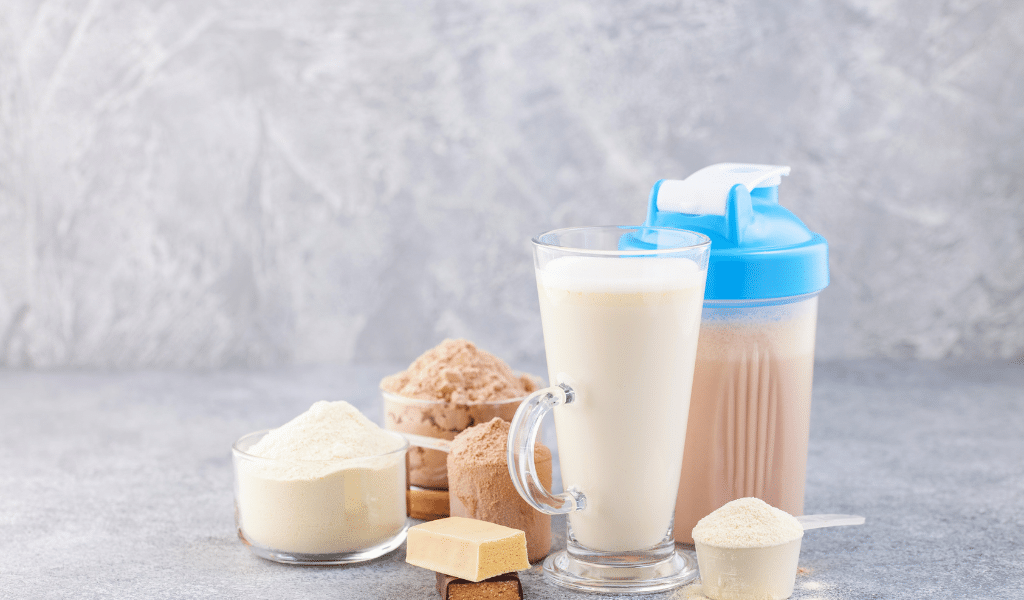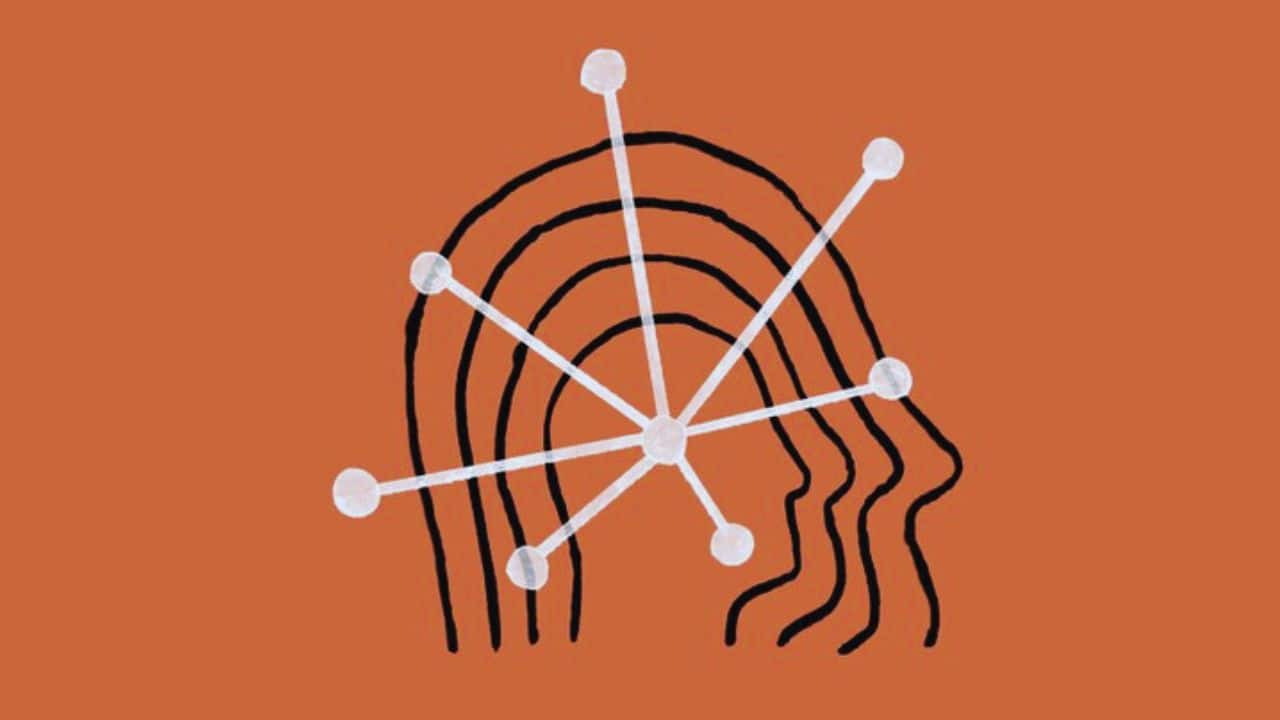Recently you’ve noticed that you’re pooping more than usual and at the same time, you found that you’re talking higher intake of protein in recent days. So, you may be thinking – does protein make you poop?
Protein alone does not directly stimulate bowel movements. However, consuming an adequate amount of protein as part of a balanced diet, along with sufficient fiber and hydration, can help support regular bowel movements and promote overall digestive health
Now, let’s move on to the article and learn about it in detail.
Myth Busting: Protein and Poop Relation
There are several common misconceptions about the relationship between protein consumption and bowel movements. While it is true that protein can impact digestion and bowel movements, the effects can vary based on the type and quantity of protein consumed.
Different types of protein can have different impacts on waste production. Plant-based proteins, like legumes and nuts, tend to generate less waste compared to animal proteins such as fish, poultry, and eggs.
Additionally, the amount of protein consumed plays a role in bowel movements. Larger quantities of protein can potentially lead to more frequent bowel movements compared to smaller amounts.
However, it’s important to note that the body can adapt to the amount of protein consumed over time. This means that the initial increase in bowel movements due to higher protein intake may lessen as the body adjusts.
Ultimately, the impact of protein on bowel movements can vary depending on factors such as protein type, quantity, and individual differences. It’s best to monitor your own body’s response and make adjustments as needed to maintain a healthy balance.
How Does Your Body Digests Protein?
The process of digesting protein in your body involves breaking it down into smaller components called amino acids. This begins in the mouth as you chew and continues in the stomach and small intestine.
When you eat food, proteins are initially broken down into smaller peptides by the action of digestive enzymes in your saliva. However, the majority of protein digestion takes place in the stomach. In the stomach, hydrochloric acid (HCl) and an enzyme called pepsinogen are produced. The acidic environment of the stomach activates pepsinogen, converting it into pepsin. Pepsin then acts on proteins, breaking them down into shorter chains of amino acids called peptides.
It is important to have sufficient stomach acid for proper protein digestion. Inadequate levels of stomach acid can slow down the digestion process.
Protein powder is generally digested in a similar way to dietary protein. However, the rate of absorption may vary depending on the specific type of protein powder and how it is consumed. For example, whey protein is typically absorbed more quickly than casein protein. Additionally, when protein powder is consumed as a liquid without additional fat or fiber, it is generally absorbed faster than protein from whole foods.
Does Protein Make You Poop
Yes, protein can indeed have an effect on your bowel movements, and finding the right balance is important for maintaining healthy digestion.
Protein is a vital macronutrient necessary for various functions in the body. However, when it comes to digestion, consuming too much protein can potentially lead to constipation. This is because excessive protein intake can cause the stool to become hard and difficult to pass. On the other hand, inadequate protein intake can result in looser stools or even diarrhea.
To promote regular and healthy bowel movements, it is crucial to strike a balance in your protein consumption. Incorporating foods rich in quality protein, such as lean meats, poultry, fish, eggs, legumes, and dairy products, is essential for overall health. However, it’s equally important to ensure that you’re not overdoing it.
To optimize the benefits of protein intake for your digestion, it’s recommended to combine protein-rich foods with a diet that is high in fiber and low in fat. Fiber adds bulk to your stools, making them easier to pass and reducing the risk of constipation. Good sources of dietary fiber include fruits, vegetables, whole grains, and nuts.
Additionally, staying adequately hydrated is crucial for maintaining a healthy protein balance and supporting regular bowel movements. Water helps soften the stool, making it easier to pass through the intestines.
It’s worth noting that individual responses to protein intake can vary. Some people may be more sensitive to high-protein diets and experience digestive discomfort or changes in bowel movements. In such cases, it can be beneficial to work with a healthcare professional or registered dietitian to determine the optimal protein intake that suits your body’s needs.
Overall, protein is an important component of a balanced diet, but it’s essential to find the right balance for your individual needs. By combining protein with fiber-rich foods, staying hydrated, and listening to your body’s signals, you can maintain healthy bowel movements and support your overall digestive health.
Will Vegan Protein Powder Make You Poop?
The effect of vegan protein powder on your bowel movements can vary based on the specific product you are using.
If you opt for a plant-based vegan protein powder, it may potentially increase your bowel movements due to its high fiber content. Fiber plays a crucial role in supporting proper digestive function and facilitating the movement of food through the intestines.
However, it’s important to note that not all vegan protein powders are equal in terms of their fiber content. To ensure that the vegan protein powder you choose is high in fiber, it is advisable to carefully review the product labels before making a purchase.
In addition to fiber intake, staying adequately hydrated by consuming plenty of water throughout the day can further enhance the benefits of your vegan protein powder and contribute to healthier bowel movements. Hydration helps soften the stool and aids in maintaining regularity.
By selecting a vegan protein powder with ample fiber and maintaining good hydration, you can potentially experience the positive effects on your digestive system and enjoy improved bowel regularity.
How Does Whey Protein Affect Digestion?
The impact of whey protein on digestion can be both beneficial and potentially problematic.
Whey protein is considered a high-quality protein source, containing all nine essential amino acids necessary for muscle growth, repair, and maintenance. When consumed in moderation, it can support healthy digestion.
However, excessive intake of whey protein can potentially lead to constipation. This is because whey protein has a high concentration of proteins but tends to be low in fiber. Insufficient fiber intake can contribute to difficulties in passing stool.
To optimize the digestion of whey protein and promote regular bowel movements, it is advisable to incorporate fiber-rich foods into your diet. These can include fruits, vegetables, whole grains, and legumes. The added fiber helps add bulk to the stool and facilitates its movement through the digestive system.
Additionally, maintaining adequate hydration by drinking plenty of water throughout the day is important. Water helps soften the stool, making it easier to pass through the intestines.
By striking a balance between whey protein intake, fiber-rich foods, and hydration, you can maximize the benefits of whey protein while supporting healthy digestion and bowel regularity. If you’re interested also read on Moringa powder.
Does Protein Shake Make You Poop: 5 Ways It May Happen How?
Yes. a protein shake can make you poop. Below we’re adding a few criteria for this.
Lactose Intolerance
For those with lactose intolerance, consuming protein shakes made with whey protein and milk can trigger diarrhea similar to drinking regular milk. To avoid this, opt for soy protein-based shakes, which are lactose-free and plant-based.
Excessive Protein Intake
Consuming an excessive amount of protein shakes can overwhelm your body’s capacity to process the nutrients, leading to diarrhea as the body attempts to eliminate the excess material.
Low in Fiber
Protein shakes, lacking in fiber, can contribute to faster digestion compared to fibrous foods. This quicker digestion may result in more frequent bowel movements. Additionally, protein’s strong effect on bodily processes can make the digestion of protein shakes less comfortable, potentially causing an urge to poop.
Artificial Sweeteners
Many protein shakes contain artificial sweeteners like aspartame, sucralose, or stevia, which may have a laxative effect and lead to increased bowel movements. Checking the ingredients list can help identify if a shake contains artificial sweeteners.
Brand Variations
The impact on bowel movements may vary depending on the specific brand of protein shake. If a particular protein shake consistently leads to bowel movements, it might be worth trying a different brand that suits your body’s needs better.
How to Prevent Pooping After Drinking Protein Shake?
If you find yourself experiencing bowel movements after consuming protein shakes, there are several strategies you can try to mitigate the situation:
Explore alternative protein sources
Consider trying soy protein shakes or other plant-based options that are free of lactose and may be more suitable for individuals with lactose intolerance.
Adjust the Quantity
Reduce the amount of protein shake you consume per serving. This can help alleviate any potential overload of protein that may be overwhelming your digestive system.
Increase Dietary Fiber
Incorporate more fiber-rich foods into your diet to help regulate bowel movements. This can include fruits, vegetables, whole grains, and legumes. Alternatively, you may also consider adding a fiber supplement to your routine.
Check for Artificial Sweeteners
Review the ingredients list of your protein shake to determine if it contains artificial sweeteners, such as aspartame, sucralose, or stevia. These additives can have a laxative effect on some individuals, potentially leading to increased bowel movements.
Experiment With Different Brands or Types
If you consistently experience bowel movements after consuming a specific protein shake, consider switching to another brand or type of protein shake. Each brand may have a slightly different formulation, and finding one that agrees better with your body’s digestion can make a difference.
Does Protein Cause Constipation
While protein itself does not directly cause constipation, consuming high-protein foods that are low in fiber can contribute to constipation. Some examples of high protein, low fiber foods include meat, processed foods like hot dogs, and fast food or prepared snacks. Protein can promote a feeling of fullness, aiding in weight management or loss by reducing food intake.
However, relying heavily on protein in the diet may lead to insufficient intake of other essential nutrients, including fiber. Fiber plays a crucial role in supporting regular bowel movements. Following a high-protein diet might mean that individuals replace fiber-rich foods such as whole grains, vegetables, and fruits with protein sources that lack fiber content. This dietary shift can increase the risk of constipation due to inadequate fiber intake.
Does Protein Make Your Poop Smell?
Yes, protein can contribute to changes in the smell of stool. When protein is broken down and metabolized by the body, it produces byproducts such as ammonia and sulfur compounds. These compounds can have a strong and distinct odor, which may affect the smell of bowel movements.
However, it’s important to note that the smell of stool can be influenced by various factors including diet, gut bacteria, hydration, and overall digestive health. If you notice persistent changes in the smell of your stool or have concerns about your digestive health, it’s advisable to consult with a healthcare professional for further evaluation and guidance.
Other Side Effects of Protein
Below, we’re mentioning some side effects of taking more than enough protein.
- Unhealthy Weight Gain: Excessive protein intake can lead to increased appetite and weight gain, particularly in the form of fat, when not matched with appropriate physical activity.
- Lower Blood Pressure: Whey protein supplements may lower blood pressure, which can be beneficial for most individuals but may be a concern for those already on blood pressure medications.
- Kidney Impact: Consuming high amounts of protein supplements puts pressure on the kidneys, increasing the risk of kidney damage, impairment, kidney stones, and renal failure.
- Hormonal Disruption: Soy-based protein supplements containing phytoestrogens can disrupt hormonal balance, potentially leading to hormonal imbalances, erectile dysfunction, diminished libido, and enlarged breasts in men.
- Liver Damage: A diet solely relying on protein supplements and lacking carbohydrates may lead to high blood acidity levels, impairing liver function and potentially causing liver disorders.
- Heavy Metal Poisoning: Some protein powders may contain harmful heavy metals like arsenic and lead, which can lead to illness, headaches, dizziness, and exhaustion, especially in individuals with diabetes symptoms or chronic kidney conditions.
- Drug Interactions: Protein supplements, particularly whey protein, can interact with certain medications, including osteoporosis drugs, anti-platelet medications, anti-coagulants, and NSAIDs, increasing the risk of bleeding.
- Possible Cancer Risk: Certain protein powder brands may contain heavy metals that could increase the risk of cancer, but this is still uncertain and requires further research.
- Dehydration: High-protein diets can contribute to dehydration, necessitating increased water intake.
- Acne: Whey protein may stimulate the production of hormones that can increase sebum production and lead to acne breakouts.
- Hair Loss: Whey protein may elevate testosterone levels, leading to the production of a chemical called DHT, which can contribute to hair loss.
Sign That You’re Eating Too Much Protein?
Consuming excessive protein can manifest differently in individuals, but common signs may include experiencing hard stools, abdominal discomfort or pain, bloating, and other digestive issues. This is often attributed to the high concentration of proteins and low fiber content in excessive protein intake, which can lead to constipation.
Maintaining a healthy balance of protein, suitable for your body type and activity level, is crucial for overall gut health. Including fiber-rich foods in your diet and staying hydrated by drinking an adequate amount of water throughout the day can optimize the digestion of protein and promote better bowel movements.
Furthermore, it is advisable to distribute protein intake across multiple smaller meals throughout the day rather than consuming large amounts of protein in one sitting. This helps ensure proper nutrient absorption and utilization by the body, supporting overall well-being.
Does Protein Make It Hard To Poop?
Consuming an appropriate amount of protein as part of a balanced diet can actually promote healthy digestion. However, excessive protein intake can result in uncomfortable symptoms such as bloating and nausea, which can contribute to difficulties in having regular bowel movements.
It is important to find the right balance of protein intake to support optimal digestive health and ensure a comfortable and regular bowel function. By striking a balance and avoiding excessive protein consumption, you can enjoy the benefits of protein without experiencing negative effects on your bowel movements.
Frequently Asked Questions (FAQs)
Now let’s learn about some common questions on this topic.
Does protein affect bowel movements?
Protein can impact bowel movements, promoting regularity due to its role in digestion and metabolism. However, excessive protein intake may cause increased stool frequency or loose stools.
Can excessive protein intake harm your kidneys?
While consuming large amounts of protein may not directly damage your kidneys, it can lead to digestive discomforts like bloating and nausea. Maintaining a balanced diet with moderate protein consumption is essential for overall well-being.
Are proteins entirely beneficial for you?
Proteins play a crucial role in meeting your energy and nutritional needs. However, it’s important to practice moderation. Enjoy the benefits of various protein sources while being mindful of maintaining a well-balanced diet for optimal health.
What happens if you consume protein without exercising?
Even if you’re not engaged in physical workouts, consuming an adequate amount of protein is still beneficial for your overall health. Protein helps strengthen and repair muscles, providing necessary nourishment for your body. So, ensure you’re getting sufficient protein to support your well-being, regardless of exercise involvement.
Why does protein make me poop more?
The exact reasons for protein causing increased bowel movements are not fully understood. It may be due to the body’s response to the high nutrient load or individual sensitivities.
What are the signs of too much protein?
Signs of excessive protein intake include dehydration, kidney stress, digestive discomfort, nutrient imbalances, and potential weight gain. It’s important to monitor protein intake and maintain a balanced diet to support overall health.
How Much Protein is Okay?
Based on the Dietary Reference Intake report for macronutrients, it is recommended that sedentary adults consume approximately 0.8 grams of protein per kilogram of body weight, which is equivalent to 0.36 grams per pound. For instance, an average sedentary man should aim to consume around 56 grams of protein per day, while an average woman should aim for about 46 grams.
Bottomline
We think you got the answer to your question – does protein make you poop
In summary, achieving the appropriate protein balance is key to supporting optimal gut health. Both excessive and insufficient protein intake can contribute to digestive problems like constipation or diarrhea. To improve your bowel movements, it is crucial to incorporate fiber-rich foods and maintain hydration by drinking an ample amount of water throughout the day. Additionally, distributing protein intake evenly across smaller meals is important for ensuring proper nutrient absorption and meeting your body’s nutritional needs.
Disclaimer: This content is for informational purposes only and does not replace professional medical advice, diagnosis, or treatment. This information is not comprehensive and should not be used to make health or well-being decisions. Consult a qualified healthcare professional with questions about a medical condition, treatment options, or health regimen. This website or the content should never replace professional medical advice.








































